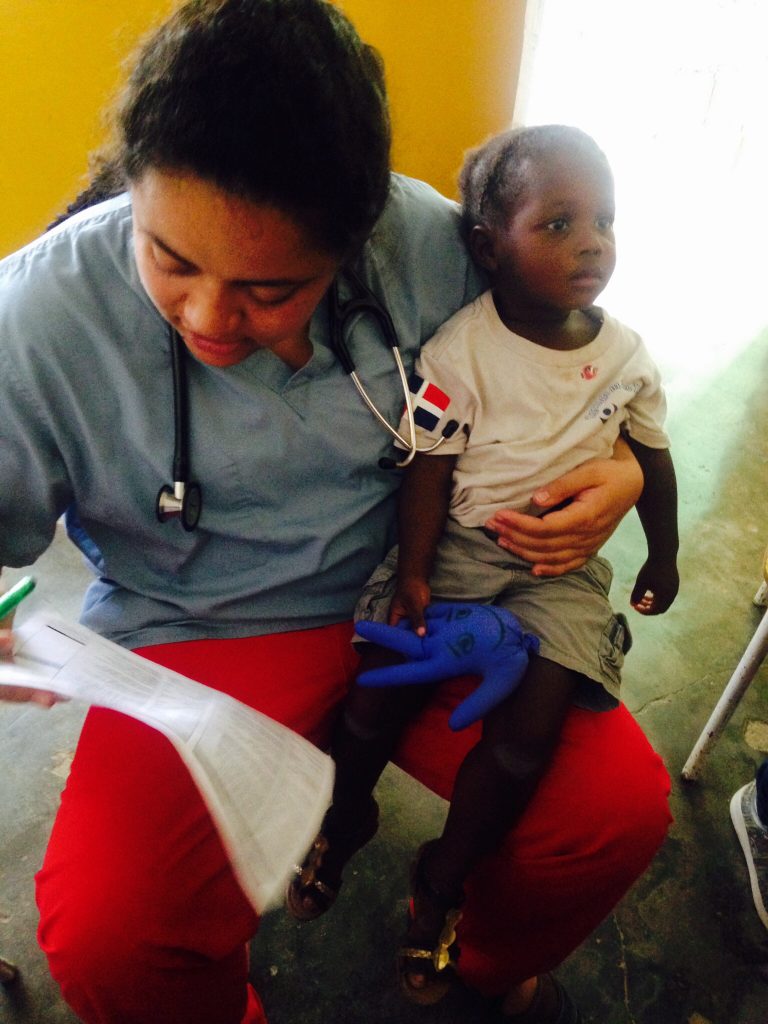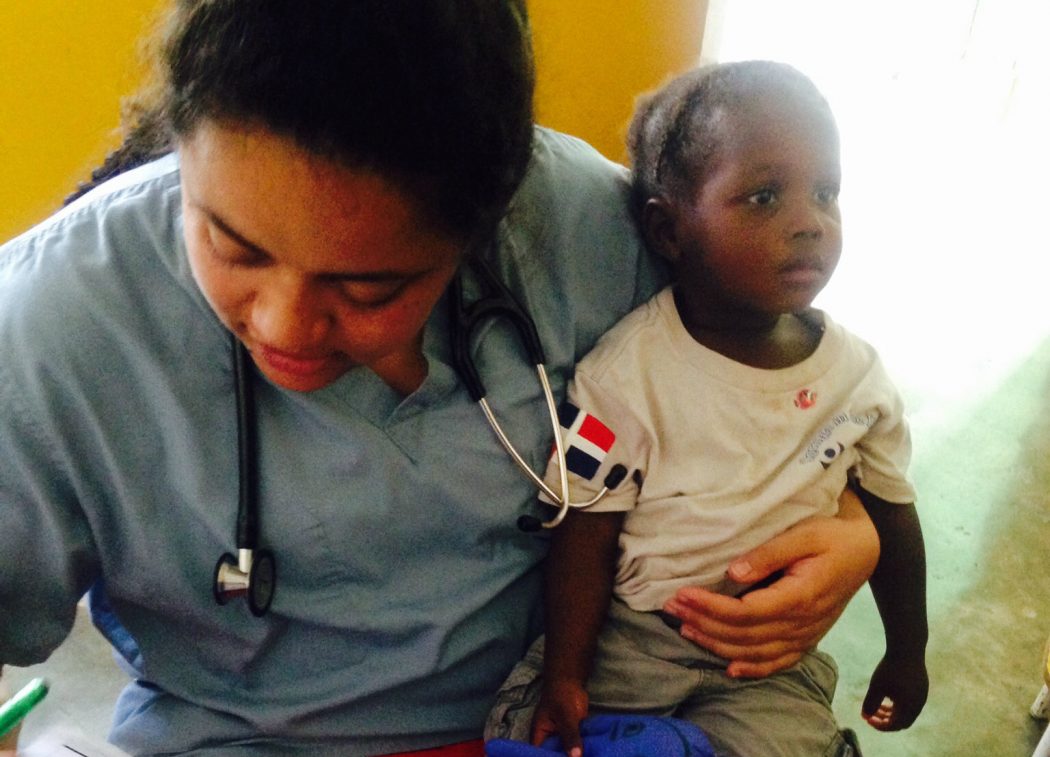I recently returned from one of the International Health Organization of Phoenix (IHOP) medical trips to the Dominican Republic, where we were able to administer care to the sugar cane workers that live in the bateyes. It was an amazing and humbling experience.
I was a bundle of emotions prior to departure. I was so excited and extremely nervous. I wasn’t sure of what to expect, and I was unsure of my skills and abilities to provide care to these people—after all, I was technically still just an MS1. That being said, I was very excited to be able to use everything we have learned during this first year of medical school.

MS2 Alicia Taase working in the batey clinic in the Dominican Republic – June 2015.
There were 12 medical students and 4 physicians on the trip. We started off the week in pairs, working together to take a complete history and physical. Each of us were very nervous at first, looking to each other to make sure we hadn’t missed anything. It started out slow, as everything had to be translated; first English to Spanish then back to English. On top of that, we had patients with long lists of complaints, and as we were all trained to be so thorough in Doctoring, we pursued each and every complaint. My first patient was an 80-year-old woman with 5 chief complaints: a headache, a cold, a large mass on her neck, diffuse body pain, and rectal bleeding. We took a thorough history of each complaint and did a very thorough physical exam, which took us about an hour. I was able to see a rectal mass which was exciting for learning purposes but very tragic for our patient, not only because she had a mass but also because there was nothing that we could do to help her and she was not likely to get any treatment due to her circumstances. Many of us encountered many similar patients throughout the week, and we were unable to do anything to treat their ailments. Instead, we were only able to offer a listening ear and comfort in knowing that we truly cared for each individual that walked into our clinic.
As the day continued, I was so proud to see each of us become more and more confident in our history taking, physical exams, and even our presentations to our attending physicians. I was amazed at how quickly everything returned and thrilled when I was able to identify an S3 and recognize crackles on physical exam. We moved through our encounters more and more efficiently as the days progressed. We asked better questions, became more familiar with common complaints that encompassed many symptoms like the “gripe,” which could mean a cold, the flu, a headache, or just about anything. We were at home in this little clinic in a country thousands of miles away, where we could barely communicate, with nothing but our skill set, our stethoscope, and some bags of pills we had brought. This is where we belonged. You could see the joy in all of our sweaty faces, the work was hard, but we loved every minute of it.
I am so grateful for the endless opportunities like this IHOP trip that I am able to be a part of. These opportunities help me to be aware of others, recognize their suffering, allow me to demonstrate sincere compassion, learn humility, offer comfort, and remind me of my passion for medicine and my desire to become a doctor.
Alicia is a student at the University of Arizona College of Medicine - Phoenix, Class of 2018. She is originally from Salt Lake City, Utah where she obtained her B.A. in Biology from the University of Utah. She is interested in Pediatrics, Surgery and Cardiology and in her free time enjoys spending time with friends and family, singing and traveling the world.

